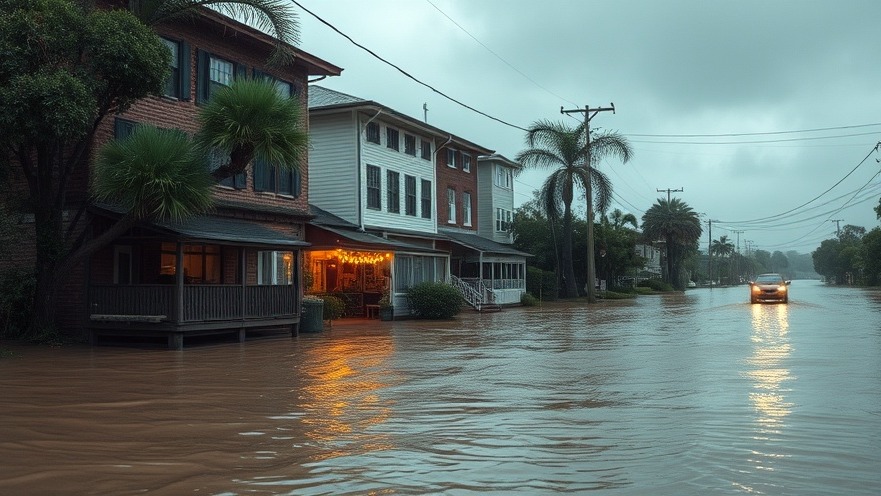
The Reckoning of McDowell County: A Community in Despair
The small community of McDowell County, West Virginia, has long been a portrait of resilience, yet following recent devastating floods, its struggle has deepened, revealing the harsh truths about poverty and neglect. As Rev. Brad Davis succinctly put it, the floods not only uprooted lives but laid bare the challenges facing this economically strained region. In February, floodwaters surged through the area, displacing families and claiming lives, and four months later, the aftermath remains overwhelmingly heavy.
A Legacy of Decline
The economic decline of McDowell County has historical roots; once a thriving coal town, it faced a significant downturn as the coal industry collapsed. From bustling coal mines to deserted homes, the trajectory of this county reflects a broader narrative seen in many Appalachian communities. With the area already grappling with one of the highest poverty rates in the U.S., the flood was a catastrophic event that magnified existing issues. Residents have expressed their feelings of abandonment, stating they feel forgotten by government and society. The county's population has been hemorrhaging for decades, a trend that complicates recovery efforts.
Federal Relief: A Drop in the Bucket
Since the flood, approximately $12 million in federal relief has been allocated—an amount that, while significant, falls severely short of the needs for full rebuilding and recovery. With economic indicators suggesting that McDowell County has the highest overdose rate and a life expectancy 12 years shorter than the national average, many community members question the effectiveness of these funds. The dissatisfaction with governmental aid has led to widespread apathy toward the electoral process, highlighted by low voter turnout in recent elections, as people feel their voices no longer matter.
The Social Toll: Mental and Physical Health in Crisis
The human cost of these crises doesn't merely reside in statistics. Local residents like Shawn Rutherford describe the mental and physical toll of ongoing adversity. The psychological burden of repeated natural disasters compounded by economic stagnation fosters a grim outlook for many, indicating a desperate need for psychological support in addition to physical restoration funds.
Charting a Path Forward
So, what does recovery look like for McDowell County? Solutions may require a holistic approach, focusing not only on physical infrastructure but also on community development and mental health support. Local leaders are beginning to push for strategies that encompass economic diversification—an idea that shifts reliance away from coal. Engaging younger generations to envision a sustainable future through entrepreneurship or education could revitalize the spirit of hope necessary for long-term recovery.
A Call to Action
The narrative of McDowell County is not just a story of loss but a reminder of resilience. Voices like Rev. Davis's urge community engagement and increased awareness. There’s a crucial need for both local support and broader national attention to these embattled areas. As the nation grapples with its problems, we must not overlook the unique challenges faced by communities like McDowell County. Stepping up to allocate more resources and ensure equitable support can provide the momentum necessary to foster recovery and rebuild hope.
 Add Element
Add Element  Add Row
Add Row 



Write A Comment